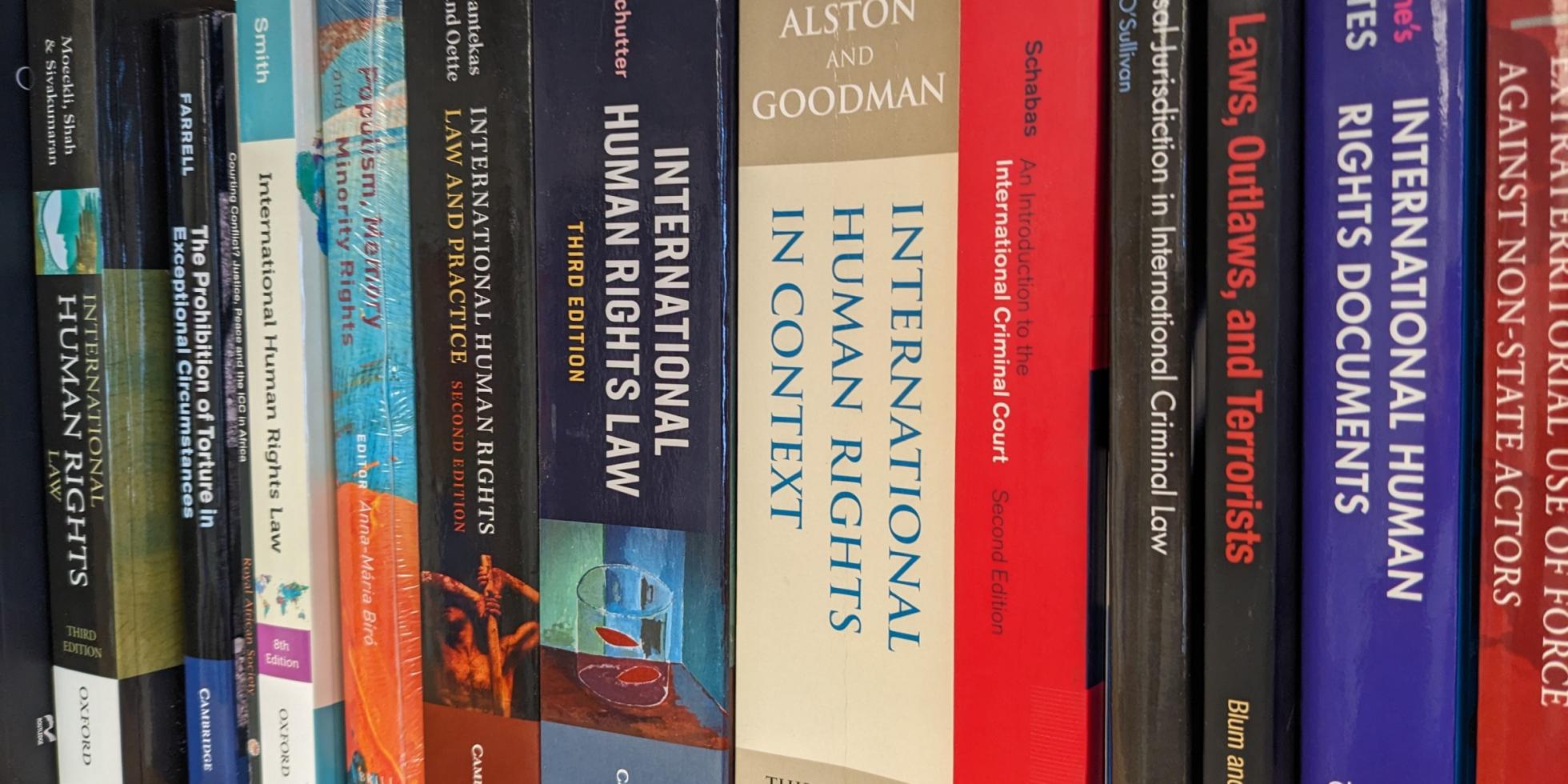The virtual human rights library brings together resources from multiple libraries and information services, both internal and external, to create an online hub dedicated to the study of human rights. This curation is unique in its interdisciplinary concerns and focuses on writings and research from social sciences, humanities, and law.
The virtual library is continually updated with the latest academic research in issue areas, as well as with relevant films, recorded conversations, and other forms of media.
Please Note:
The Virtual Library is usable by all visitors, but the hyperlinks to materials listed are for UChicago community members with a CNet ID and password.
Please direct feedback and suggestions to Kathleen Cavanaugh.
For technical assistance, email pozenhumanrights @ uchicago.edu.
Searchable Database
Click into the dropdowns to select the disciplines, keywords, and media type for your search, and then hit "Apply."
"What Do Human Rights Do? An Anthropological Enquiry"
In the torrent of reporting on human rights in recent years far more attention is given to human rights violations in the non-Western world than in Euro-America. How should we explain this imbalance? … [W]e should look at the variable...
"What is democracy? Promises and perils of the Arab Spring."
The Arab Spring is still unfolding, as is the direction of change, and outcomes may be different for violent and nonviolent uprisings. This article focuses on three early cases of the Arab Spring – Tunisia, Egypt, and Morocco – to...
"What is to be Done? Theses on the Degradation of Social Existence in a Globalizing World."
This article asks three questions. How does the sociologist understand the common sense of subaltern groups, whether subjugated on the basis of gender, class, race, ethnicity or nationality? What could be the political practice of the sociologist with regard to...
"What One Sees and How One Files Seeing: Human Rights Reporting, Representation and Action"
This article argues that the forms through which violence and atrocity are expressed – legal, statistical and testimonial – are important objects of analysis because credo is manifest in form, and an examination of form reveals something about the relationship...
"When All Else Fails: International Adjudication of Human Rights Abuse Claims, 1976–1999."
Although interest in the consolidation and expansion of the international human rights regime has grown in recent years, little attention is accorded to the formal procedures that allow individuals aggrieved by states to appeal directly to an international audience. Using...
"When Do National Movements Adopt or Reject International Agendas? A Comparative Analysis of the Chinese and Indian Women's Movements."
When do national movements adopt or reject international agendas? This question regarding the relationship between global and local thinking goes to the heart of the current globalization debates. This study examines the contrasting responses from the Chinese and Indian women's...
"When “justice” is criminal: lynchings in contemporary Latin America."
Across Latin America, the 1990s saw an increase in popular lynchings of suspected criminals at the hands of large crowds. Although it is often assumed that these incidents involve random, regrettable, and relatively spontaneous acts of violence or throwbacks to...
"Where do rights come from?."
Citizenship rights came into being because relatively organized members of the general population bargained with state authorities for several centuries, bargained first over the means of war, then over enforceable claims that would serve their interests outside of war. During...
"Whiteness as Property"
Issues regarding race and racial identity as well as questions pertaining to property rights and ownership have been prominent in much public discourse in the United States. In this article, Professor Harris contributes to this discussion by positing that racial...
"Who is willing to share the burden? Attitudes towards the allocation of asylum seekers in comparative perspective."
Europe faces the challenge of enormous recent asylum seeker inflows, and the allocation of these immigrants across European countries remains severely skewed, with some countries having a much larger per capita share of asylum applicants than others. Consequently, there is...

